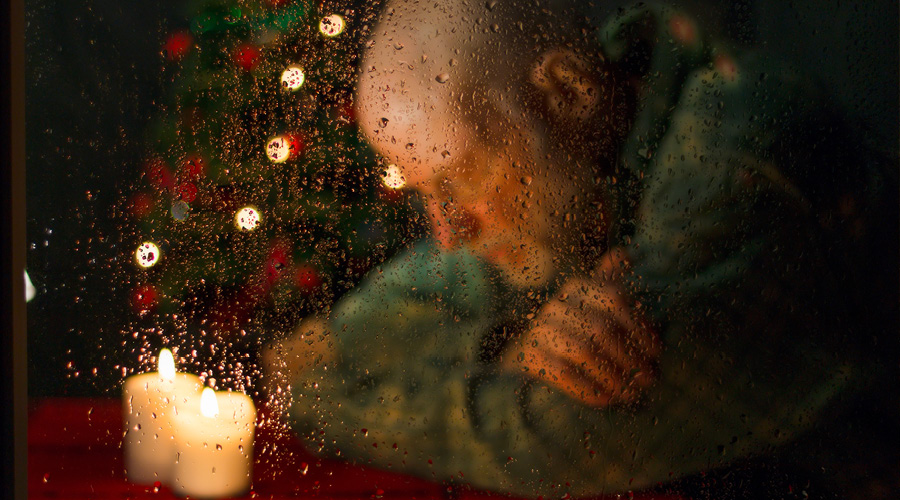For many, “the most wonderful time of the year" doesn't always feel so wonderful.
Here are some reasons why older adults may feel especially sad during the holiday season, and ways to help cope with those feelings.
Why would someone experience holiday blues?
The causes of holiday-related depression are as diverse as those who suffer from it.
Some possible reasons might include:
- An individual’s family life may have been less than ideal, with the holidays being especially rough due to alcoholism, domestic violence, poverty or the loss of loved ones.
- During the holidays, losses can be “magnified.” These losses may include the death of a loved one or the loss of the ability to drive oneself around town or live independently. These losses can be especially difficult to cope with at this time of the year.
- Some people suffer from seasonal affective disorder, or SAD. It’s a mood disorder characterized by depression that usually manifests itself during winter, when natural sunlight is decreased.
- Commercialism associated with Christmas may be depressing to some because they believe the true meaning is diminished or lost amidst the hustle and bustle.
- An individual might subscribe to a faith tradition in which Christmas is not celebrated. Or that individual may not be part of any faith tradition. People can feel pressured to be joyous or happy when they do not feel that way.
- Some might also struggle from post-holiday blues or end of holiday syndrome. These are short-term feelings that people experience after the excitement of the holidays, including loneliness, sadness, disappointment, fatigue, mental health distress, sluggishness or even dread of the upcoming winter months.
How can I help someone cope with holiday blues?
Talk about it.
If you notice someone who seems sad, talk to them about how they're feeling. If you're feeling depressed, don't be afraid to talk about it. This can be done informally or with assistance from clergy or professional counselors.
Feelings may go undiscovered or unresolved simply because the right questions are never asked.
Determine what’s setting off these feelings around the holidays, and how you can both acknowledge and learn to cope with these seasonal emotions.
Respect it.
In our Good Samaritan Society communities across the country, we strive to provide opportunities for residents to express and celebrate their particular beliefs and holiday traditions. As we might do in our communities, from time to time, you or your loved one may need to create a “holiday-free zone.”
On the other hand, if someone is dealing with a loss, he or she might be more intentional about focusing on and maintaining a beloved tradition such as attending a candlelight service or viewing Christmas light displays.
Grow from it.
Some people find new opportunities that help them overcome their holiday blues.
Try volunteering, joining a social club or support group, or visiting a resident in a nursing home who has no family nearby.
Channeling your feelings can help turn them into something beneficial for both you and the people around you.
Everyone has a unique mix of life experiences, cultures, traditions and memories surrounding the holidays. Take time to acknowledge and value your perspective and the perspectives of others.
Doing so can contribute immensely to alleviating feelings of depression and improving emotional well-being.
We can help.
Sometimes, additional help at home or someone to talk to can make the holidays brighter for you and your loved ones.




